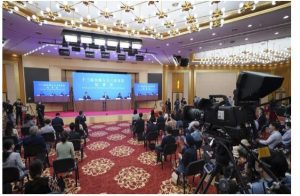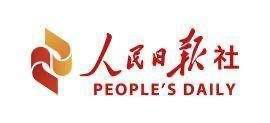Chinese State Councilor and Foreign Minister Wang Yi briefed the media about China’s foreign policy priorities in 2020, taking questions from journalists from around the world at a press conference on the sidelines of the third session of the 13th National People’s Congress (NPC).
Here are some highlights of the press conference:
Global COVID-19 fight
At the press conference, Wang paid high respect to healthcare workers around the globe fighting COVID-19 and expressed deep condolences over the lives lost during the pandemic.
Wang also thanked governments and people across the world that have offered their understanding, care and help to China amid the coronavirus outbreak.
“The virus cannot defeat humanity; we will eventually prevail. The darkest hour will pass,” said Wang.
The most important thing that can be learned from COVID-19 is that the life and health of people in different countries have never been so closely connected, he added.
“It has never been made so clear that all nations live in the same global village and that humanity is, in fact, a community with a shared future,” Wang told the reporters.
Facing some politicians in the U.S. who are eager to label the virus and stigmatize China, Wang stressed that virus tracing is a serious and complex scientific task, which should be studied and explored by scientists and medical experts.
“The difference between China and some U.S. politicians is as wide as that between facts and lies, between science and prejudice,” pointed out Wang.
China has always been open to joint efforts by the international science community to identify the source of virus, and believes that the process must be professional, impartial and constructive, and should “be free from political interference, respect the sovereign equality of nations, and avoid a presumption of guilt.”
Support for the WHO
Commenting on the U.S. bashing of the World Health Organization (WHO), Wang stressed WHO’s international role in global health issues, saying to support the WHO is to support saving lives.
WHO chief Tedros Adhanom Ghebreyesus has done a good job, and countries with decency will support the body, Wang said.
“We hope all countries will realize that humanity is a community with a shared future. We must render each other more support and cooperation, and there should be less accusation and confrontation. We call on all nations to come together and build a better world for all,” he said.
“As for WHO’s international standing and its place in history, I’m sure clear-eyed people the world over will reach a fair conclusion, one that will not be altered just because some country doesn’t like it,” Wang added.
Those who throw mud at the WHO will only leave a stain on themselves, said Wang.
China-U.S. relations
The COVID-19 epidemic is the common enemy of China and the Unites States, and it is the shared wish of both countries’ people to support and help each other.
At the beginning of the outbreak, some U.S. entrepreneurs, associations and people helped China. China has also donated a large number of medical materials as the U.S. is battling the pandemic.
More than 12 billion masks have been exported to the U.S. from the Chinese side, which means 40 masks for every American, according to Wang.
Wang also warned that a “political virus” that wastes no chance to attack and smear China is spreading in the United States.
Some U.S. political forces are hijacking China-U.S. relations, and efforts should be made to stop the dangerous practice, he said.
“Both China and the U.S. stand to gain from cooperation and lose from confrontation; this best captures what we have learned, positive and otherwise, from the past decades. Both sides should take this lesson to heart,” Wang stressed.
China-Russia relations
China and Russia will turn the COVID-19 crisis into an opportunity and bilateral relations will receive a strong boost after the pandemic, said Wang.
In response to a question about whether China and Russia will join forces to challenge U.S. predominance, Wang said the two countries have supported and defended each other against slander and attacks coming from certain countries.
“Together, China and Russia have forged an impregnable fortress against the ‘political virus’ and demonstrated the strength of the bilateral strategic coordination.”

Hong Kong SAR
Hong Kong affairs are China’s internal affairs, and no external interference will be tolerated, Wang said.
Talking about the draft decision for HKSAR to safeguard national security, Wang said the decision is targeted at a narrow category of acts that seriously jeopardize national security.
“It does not affect the high degree of autonomy in Hong Kong. It does not affect the rights and freedoms enjoyed by Hong Kong residents, and it does not affect the legitimate rights and interests of foreign investors in Hong Kong,” Wang said.
Taiwan region
Responding to questions about China’s Taiwan, Wang stressed that reunification of the two sides of the Taiwan Strait is the trend of history. No individual or force can stop it from happening, he said.
Wang also urged the U.S. side to fully appreciate the great sensitivity of the Taiwan question.
“We advise the U.S. side to ditch its illusions and political calculations. We ask the U.S. side not to make any attempt to challenge China’s red line,” Wang noted.
Other topics
Answering a question about current China-European Union relations, Wang said that “China and the EU should not be each other’s systemic rivals,” but “comprehensive strategic partners.”
The diplomatic agenda between China and EU has certainly been influenced by the pandemic, but leaders from both sides “will keep in close contact in preparation for the 22nd China-EU leadership conference”, he said.
Talking about China’s relationship with Africa, Wang said China is working with other G20 members to implement the debt service suspension initiative to ease Africa’s debt burden and it mulls further bilateral support for African countries to fight against COVID-19.
China has sent medical expert teams to Africa’s five sub-regions and their neighboring countries and has conducted nearly 400 training sessions in Africa for around 20,000 local medical workers as part of sharing anti-epidemic experience, according to Wang.
The diplomat has also pointed out that the general outline of a settlement for the nuclear issue on the Korean Peninsula is clear and the rare opportunity for solving the issue should not be missed again.
He stressed the way to achieve a genuine settlement as “not only talk the talk, but also walk the walk.”
Courtesy: CGTN.COM
 Africa -China Review Africa -China Cooperation and Transformation
Africa -China Review Africa -China Cooperation and Transformation
